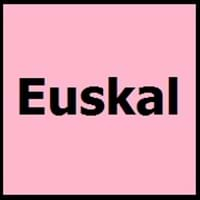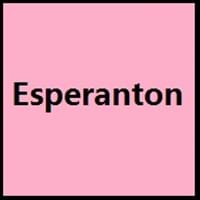Basque and Esperanto
Countries
Basque Autonomous Community, Navarre
East Asia, European Union, South America
National Language
France, Spain
East Asia, European Union
Second Language
Not spoken in any of the countries
Central Europe, East Asia, Eastern Europe, South America
Speaking Continents
Asia, Europe
Asia, Europe, South America
Minority Language
Not spoken in any of the countries
Not spoken in any of the countries
Regulated By
Euskaltzaindia, National Languages Committee
Akademio de Esperanto
Interesting Facts
- The Basque language is the oldest European language.
- Basque alphabet include many Roman letters.
- The most widely spoken constructed language in the world is Esperanto.
- Esperanto is an artificial international language.
Similar To
Spanish
Not Available
Derived From
Not Available
Not Available
Alphabets in
Basque-Alphabets.jpg#200
Esperanto-Alphabets.jpg#200
Writing Direction
Not Available
Not Available
Thank You
Eskerrik asko
Dankon
How Are You?
Zer moduz?
Kiel vi sanas?
Good Night
Gabon
Bonan nokton
Good Evening
Arratsalde on
Bonan vesperon
Good Afternoon
Arratsalde on
Bonan posttagmezon
Good Morning
Egun on
Bonan matenon
Sorry
Barkatu
Mi bedaŭras!
I Love You
Maite zaitut
Mi amas vin
Excuse Me
Barkatu
Pardonu!
Dialect 1
Navarro-Lapurdian
Not present
Where They Speak
France
Not present
How Many People Speak
Not Available
Dialect 2
Souletin
Not present
Where They Speak
France, Soule, Spain
Not present
How Many People Speak
Not Available
Dialect 3
Biscayan
Not present
Where They Speak
Spain
Not present
Speaking Population
Not Available
Not Available
Second Language Speakers
Not Available
Native Name
Not available
Esperanto
Alternative Names
Euskara, Euskera, Vascuense
Eo, La Lingvo Internacia
French Name
basque
espéranto
German Name
Baskisch
Esperanto
Pronunciation
Not Available
[espeˈranto]
Ethnicity
Basque people
Not Available
Language Family
Vasconic Family
Indo-European Family
Subgroup
Not Available
Not Available
Branch
Not Available
Not Available
Early Forms
Proto-Basque, Aquitanian
Proto-Esperanto
Standard Forms
Basque
Esperanto
Signed Forms
Not Available
Signuno
Scope
Not Available
Individual
ISO 639 6
Not Available
Not Available
Glottocode
basq1248
espe1235
Linguasphere
40-AAA-a
51-AAB-da
Language Type
Not Available
Constructed
Language Linguistic Typology
Subject-Object-Verb
Not Available
Language Morphological Typology
Agglutinative
Agglutinative
All Basque and Esperanto Dialects
Most languages have dialects where each dialect differ from other dialect with respect to grammar and vocabulary. Here you will get to know all Basque and Esperanto dialects. Various dialects of Basque and Esperanto language differ in their pronunciations and words. Dialects of Basque are spoken in different Basque Speaking Countries whereas Esperanto Dialects are spoken in different Esperanto speaking countries. Also the number of people speaking Basque vs Esperanto Dialects varies from few thousands to many millions. Some of the Basque dialects include: Navarro-Lapurdian, Souletin. Also learn about dialects in South American Languages and North American Languages.
Basque and Esperanto Speaking population
Basque and Esperanto speaking population is one of the factors based on which Basque and Esperanto languages can be compared. The total count of Basque and Esperanto Speaking population in percentage is also given. The percentage of people speaking Basque language is Not Available whereas the percentage of people speaking Esperanto language is Not Available. When we compare the speaking population of any two languages we get to know which of two languages is more popular. Find more details about how many people speak Basque and Esperanto on Basque vs Esperanto where you will get native speakers, speaking population in percentage and native names.
Basque and Esperanto Language Codes
Basque and Esperanto language codes are used in those applications where using language names are tedious. Basque and Esperanto Language Codes include all the international language codes, glottocodes and linguasphere.





